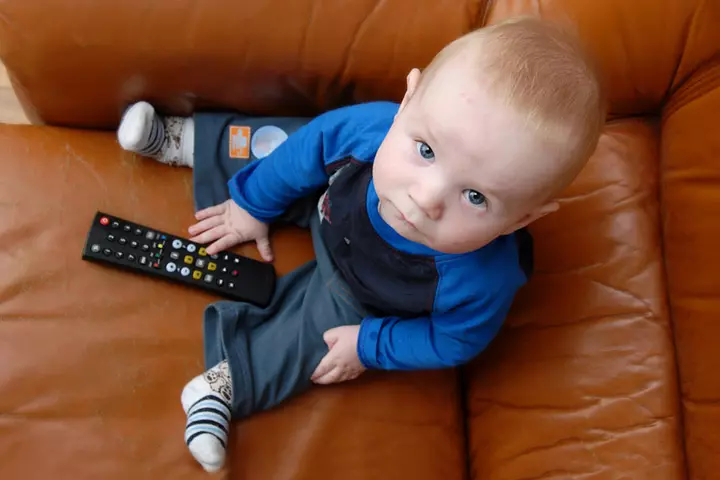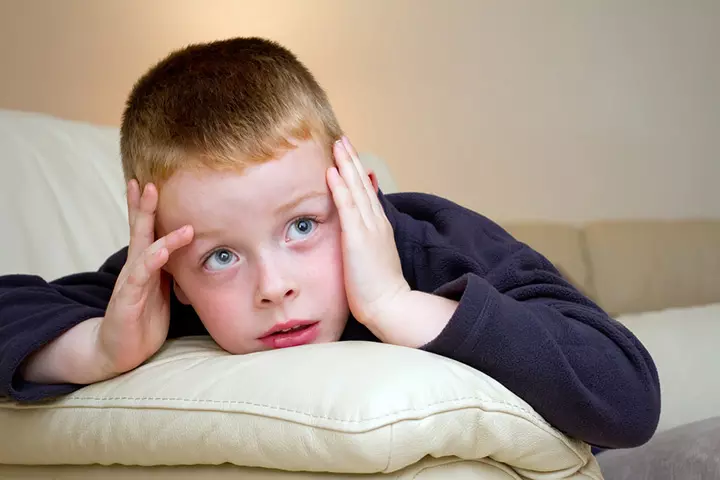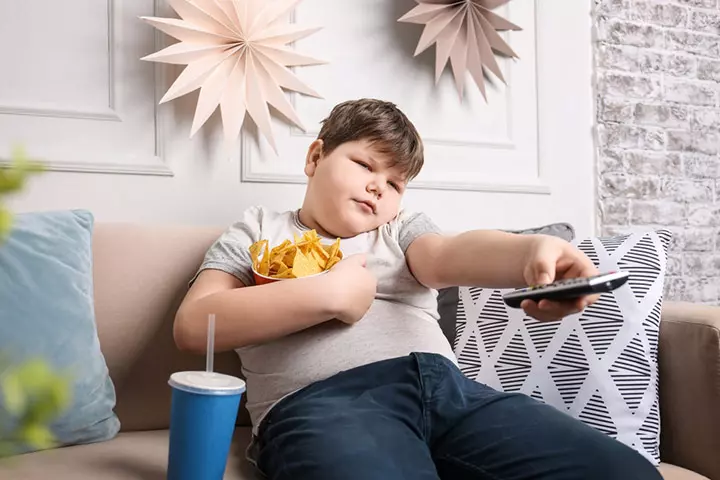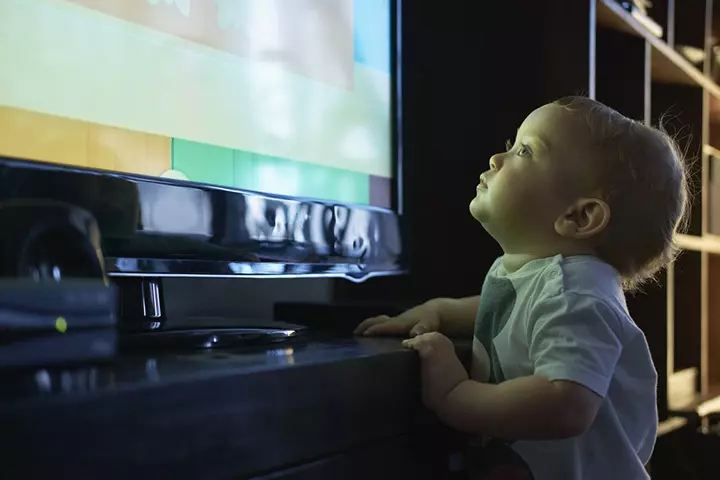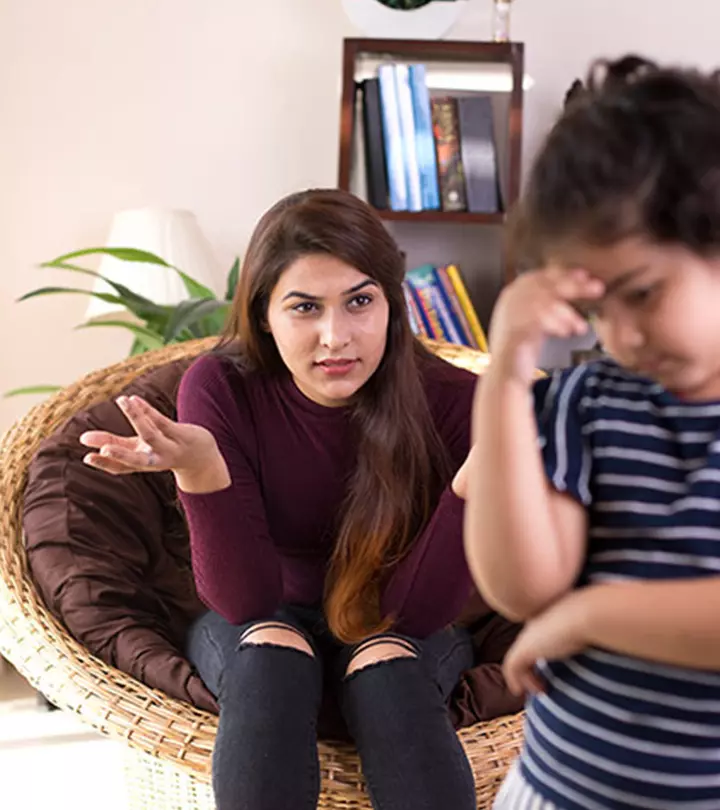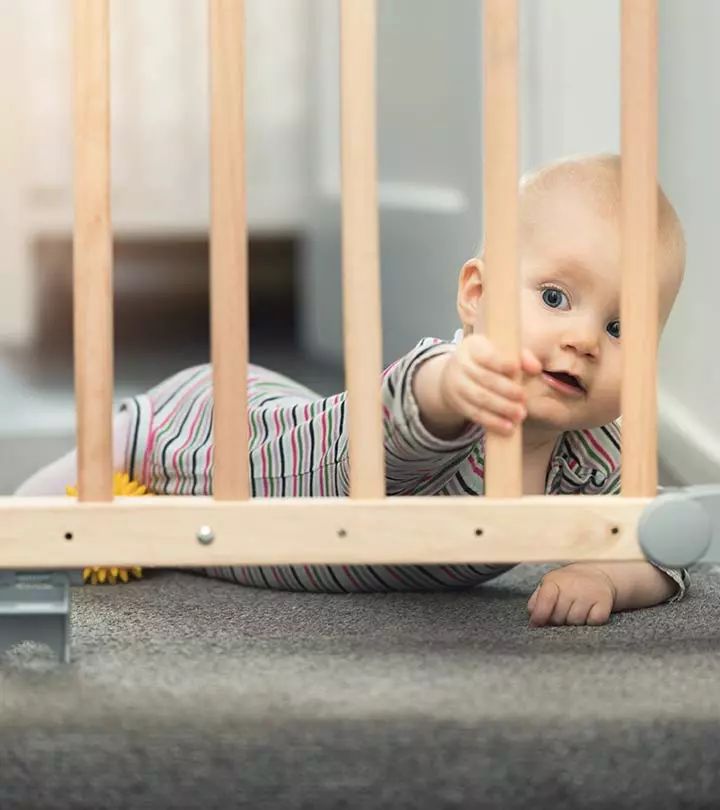

Image: Shutterstock
From the first instance of the black-and-white days of television viewing to the present day, a lot has changed in terms of content and technical aspects. Today, the growing concern isn’t just about the number of hours spent watching the screen, but it is also about the flood of videos streaming on portable devices available to every Tom, Dick, and Harry. The problem lies beyond the idiot box. Viewing television on portable devices make it easier to consume more media—at our peril. This has made the children and adults all the more accustomed to unmindful watching. And they say it is subject to viewer’s discretion, really? When adults fail to control their aimless binge-watching sessions, who is to control the children from doing so? If you have wondered how television viewing could impact the development of a child, and wish to err on the side of caution, here’s what you need to know.

Are Young Minds Really Being Harmed?
Image: Shutterstock
According to David L. Hill, Chair of American Academy of Pediatrics Council on Communications and Media, any exposure to television before the age of two reflects strongly on the language development of the child (1). Often, parents use television and other electronic devices as pacifiers and soothers for children. It sure does become easier to deviate a cranky toddler’s mind, but one cannot overlook its influence that can jeopardize the child’s brain development. The child becomes unreasonably dependent on televisions and other sources to seek peace and tranquility. On the other hand, the child’s mind actively learns and mimics all that it sees, and television spews a sizeable amount of negative content that the children are fed with.
Studies show that prolonged exposure to television can alter the anatomical structure of a child’s brain and diminish the verbal abilities (2). A definite cause-and-effect relationship is quite tricky to prove, but these long hours spent gawking at the screen can be pernicious to the mental health and behavior of a child.
Does The Idiot Box Advocate Idiocy?
Image: Shutterstock
In 2013, a team of researchers at Tohoku University in Japan, under the directions of neuroscientist Hikaru Takeuchi, were the first to publish the findings from a study that scrutinized the brains of 290 children between the ages of 5 and 18. The images of the brain showed that the more exposure the kids had to television, the bulkier the brain’s hypothalamus, septum, sensorimotor area, and visual cortex had become. These portions of the brain are primary indicators of emotional responses, arousal, anger and combativeness, and vision. The images of these children’s brains also showed a thickened frontal lobe region, implying a diminished language-based reasoning ability. Another research credits TV watching in infant years to aggressive behavior in the growth years of the child (3). A toddler learns a lot more from dismantling things while you are busy managing the household chores, than from watching TV. The repercussions of the TV’s numbing effect on the psychosocial and brain development are profound. The time spent on TV can never substitute the time spent communicating with parents and learning new words, which is why excessive television watching can stunt a child’s first words.
Limits Your Child To Being A Couch Potato
Image: Shutterstock
When young eyes are glued to television, they are denied physical activity and socialization. Not only does TV viewing limit the child’s interactiveness and well-being, but is also the reason behind those extra pounds. TV commercials lure the viewers into gorging on unhealthy food. A study suggests that children who spent even an hour in front of the boob tube are 72 percent more likely to be obese (4). TV viewing acts as a distraction that makes the children crave unhealthy food like candies, aerated drinks, and packaged snacks, thereby leading to an unhealthy diet and sedentary lifestyle.
Media Violence And Impact On The Child
Image: Shutterstock
In the early years of life, children have little sense of what is real and what is staged. Watching violence, anger, and trauma can lead to a chemical change in the brain that is akin to the changes that occur in post-traumatic stress disorder. This change can affect the growing mind of the child immensely. Children often tend to emulate what they see and hear, which is why parental guidance is a must. Viewing violence and deviant content on television eventually desensitizes them, resulting in aggressive problem-solving tactics, lack of empathy, and indifference to gratification and social relationships. Parents need to be cautious about what the little ones in the family are watching, especially when there is no dearth of adult content brewing everywhere.
Like there are two sides to a coin, television viewing can also advocate positive lessons like helping elders, exploring the nature, and learning new languages. However, TV can never be a substitute for playtime or social interactions. So, instead of seeking help from the idiot box, encourage your little ones to go out and explore the world.
Community Experiences
Join the conversation and become a part of our nurturing community! Share your stories, experiences, and insights to connect with fellow parents.

